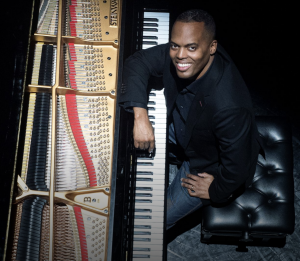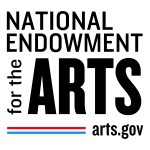Ric’key Pageot: Inspiring a Moment to Learn, Acknowledge, and Respect
Words by Okara Imani
How about that five hundred dollar word, eh? Diaspora. Oxford Language generally defines it as “ The dispersion of any people from their original homeland, but specifically from an anthropological perspective, more poignantly as “the people so dispersed.” I could only begin to tell you just how strongly I identify with this definition as a Black American woman living in a world that’s both post-slavery and pro-colonialism. I could attempt to outline the sort of cultural dysphoria and disconnect I feel if I sit and contemplate the Motherland too intently; if I marinate too long on the blurry and disputed meaning and origins of my name.
The concept of cultural heritage can quite easily be taken for granted by peoples whose ancestors lived or arrived in a place of their own volition, its implications and impact underestimated. A person outside the African diaspora here in The States may wonder about their middle name, only to inquire with a few family members and end up down a rabbit hole’s worth of family history, replete with old photos, newspaper clippings, and the like. Conversely, a Black American can be born into a community rooted in the Kwanzaa traditions and pan- African ideologies, be named by that community in a full ceremony, and still grow up with questions unanswered about the true origins of her name. Where I once knew my name to be Swahili, meaning “in the likeness of the Creator”, I’ve come to an impasse after meeting countless Nigerians saying the name sounds like one of theirs.
 While these examples are both conjectured from many conversations, experiences, and readings, the process of distortion and dilution that follows “a people so dispersed” can be seen highlighted in Ric’key Pageot’s discussion of Vodou with Joshua and Angela in Season Two, Episode Six of Melanated Moments in Classical Music podcast. There he describes a history of Vodou, a legitimate, practiced, and observed religion, in due time being reduced to the fear and mystery it invokes in colonizers who instigated its existence in the ‘New World.’ Practicing in secret for possibly centuries, before ultimately being commodified and commercialized in the name of tourism and capitalistic gains, all while its truest, sacred pillars of spiritual practice are shrouded in misunderstanding and misrepresentation. All this moves Vodou’s children, in some cases, further and further from its origins, just as every single day lived by the African diaspora out in the world can take us further from that inherited sense of self-love, connectedness, and grounding that comes with strong ancestral heritage and knowledge.
While these examples are both conjectured from many conversations, experiences, and readings, the process of distortion and dilution that follows “a people so dispersed” can be seen highlighted in Ric’key Pageot’s discussion of Vodou with Joshua and Angela in Season Two, Episode Six of Melanated Moments in Classical Music podcast. There he describes a history of Vodou, a legitimate, practiced, and observed religion, in due time being reduced to the fear and mystery it invokes in colonizers who instigated its existence in the ‘New World.’ Practicing in secret for possibly centuries, before ultimately being commodified and commercialized in the name of tourism and capitalistic gains, all while its truest, sacred pillars of spiritual practice are shrouded in misunderstanding and misrepresentation. All this moves Vodou’s children, in some cases, further and further from its origins, just as every single day lived by the African diaspora out in the world can take us further from that inherited sense of self-love, connectedness, and grounding that comes with strong ancestral heritage and knowledge.
If I were to leave you with an actionable task, it would be this: think of a concept, an idea, religion, or tradition that you haven’t allowed yourself to take seriously, whether for distaste or discomfort. Hear the thoughts of those peoples or ideals, acknowledge them, and try to understand where they came from. They are most likely learned responses and reactions, fueled by lazy or malicious misrepresentation. Now go read, listen, inquire. Spend intentional energy to bring yourself closer to its purest, most original essence, recognizing and setting aside your biases. Once done, answer the questions: Do you still have the same distaste and discomfort? Am I still afraid, or do I understand them/this more? Do I feel any closer to those people and do I identify, even a bit, with these ideals?
I hope that you’ll find empathy in your examination and acknowledgment of ideas foreign to you because in truly doing so, you simply can’t help but examine and recognize some of yourself. And, short of writing a fully sourced and cited dissertation, this is the simplest way I can find to provide that prompt, in the loving honor of the diaspora.
Sincerely,
A People so Dispersed.






Leave a Reply